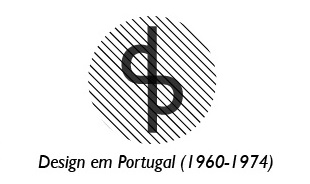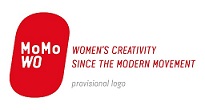UNIDCOM/IADE
Research Unit in Design and Communication
| UNIDCOM/IADE - Research Unit in Design and Communication
- R&D Groups R&D Groups1. Mapping Design - History, Products, Culture and Identity
Keywords
Portuguese Design Studies
Researchers in the Group
Coordinator: Assoc. Prof. Maria Helena Duarte Souto Nunes Prof. Clive Sidney Dilnot
Current PhD students
Rita Sofia Ribeiro Santos Marques Maia e Moura
Other researchers of the Research Group
Marília Matos Gonçalves
Description of the Research Group
The group existed in the period of 2008 - 2012 but not articulated. We must stress that organized groups are a new feature of the present process. The elements of this group were active from 2008 to 2012 within a RESEARCH LINE, the former functional unit formally allowed in FCT's funded research centers. The research line was "Theory and History of Material Culture".
Coincidently, the organization in groups was born in IADE-U, host institution, to give form to the PhD program on Design that started in October 2012. For the PhD program on Design there is a group that was designated as "Design and Culture", with a less broad range of topics than "Theory and History of Material Culture" and focusing on Design Studies that correspond roughly to the present group within UNIDCOM. The group hosts researchers from Art History, Design History, Design Studies, Drawing Studies, Science and Technology History, Philosophy of Art, Gender Studies, Literature Theory and Creative Industries Business. We must underline the participation of Dr Grace Lees-Maffei and Prof. Clive Dilnot.
2. ID:Co.Lab - Collaborative Research for Design and Sustainable Innovation Keywords
Co-Design
Researchers in the Group
Coordinator: Assist. Prof. Ana Margarida Ribeiro Dias Fernandes Gomes Ferreira
Current PhD students
Mr. Eduardo José dos Foros Santos Gonçalves, MA Mr. João Manuel Chaves de Barros Santa Rita, MA
Other Researchers in the Group
Assoc. Prof. with Aggregation Tessaleno Campos Devezas
Description of the Research Group
The group existed in the period of 2008 - 2012 but was
not yet fully articulated. Group elements developed their
The group constitutes an applied research team using creative methods and exploring collaborative and user-centered design processes to create sustainable innovations to the new social challenges, mainly in the social arena and in the cultural and creative industries. It's also important to stress that as the interaction processes between academia, industry, and civil society increased and become more demanding and complex, three key ideas emerged:
1) a broader competency framework of the team was important, mainly in the field of social sciences, such as marketing, management and social or organizations psychology;
2) multidisciplinary and collaborative work was essential to ensure an effective, holistic, and innovative response to society;
3) there was an imperative for change towards a more sustainable world leading to a creative change of our habits of life and professional methods, practices and outputs to achieve higher levels of well-being. For this reason, at present, the main assumptions that underlie the Collaborative Research for Design and Sustainable Innovation research group activities are:
a) Design is a creative, participatory and innovative discipline responsible for creating our artificial reality with a profound impact on the quality of life of our society;
b) Innovation is a systemic activity and collaborative innovation is the most effective way to generate sustainable solutions to local and global problems;
c) Users , local communities and entrepreneurs -
stakeholders - have critical experience , insights and
e) Creativity and individual human potential to generate artifacts, applied to collective dynamics , endow us the social and economic value which renews and innovates human life;
f) Creative industries, operating in the convergence between art , technology and business , are important to cultural change dynamic, social values transformation, knowledge society's emergence and transition of materialist to postmaterialist values. Finally, it is worth noting the collaboration of other PhD students, some from Carnegie Mellon University, Pittsburgh, USA and of external consultants as Dr. Henry Christiaans (TU. Delft), Dr. António Costa Valente (DeCa/UA) and specialists from different domains of expertise and companies/institutions.
3. IDEAS(R)EVOLUTION - Holistic Multidimensional System for Innovation Focused Businesses and Territories Keywords
Holistic Innovation
Researchers in the Group
Coordinator: Doctor Carlos Guilherme Vieira Alves da Rosa Assist. Prof. Anna Luana Tallarita
Current PhD Students
Mr. Américo da Conceição Mateus, MSc
Other Researchers in the Group
Assoc. Prof. Rui Alberto Lopes Miguel
Description of the Research Group
Centred in the co-creation of value (a new management and performance paradigm in the global market and competition, grounded in a robust set of scientific literature) the IDEAS(R)EVOLUTION methodology, in its extension from A to Z, is an integrated open innovation system in co-creation boosted by a collaborative platform (social software) of recruitment, learning, observation and sharing (ideas app mobile) and interaction in dialogue (IdeasCloud), conceived according to five intervention domains:
CO-RESEARCH - From people to people processes of selection, recruitment, participation and involvement using a set of research tools, data analysis and innovation trends (inovtrend analysis).
CO-BRANDING - Co-creative processes in dialogue and
interaction with the consumer for (re)construction and
CO-INNOVATION - Co-creative processes for developement
and innovation (R&D+i) user centred for
CO-DESIGN - Parametric and generative design projects within the new economic paradigma of consumer/creator/producer for the construction of integrated networks of digital production of innovative products (Digital factory).
CO-EDUCATION - Creation of learning environments and processes for knowledge transfer in "open innovation", sharing (dialogue) and co-creation with consumers.
This approach is scientically funded in the robust methodologies of design thinking (Kelley 2006, Brown 2008, Martin 2009), co-creation (Prahalad 2004, 2008; Ramaswamy e Gorrialart, 2010), Marketing 3.0 (Kotler, 2010) branding (Aaker 2010, Neumieyr 2010) and service-science dominant logic (Lusch e Vargo, 2004, Ostrom et al. 2010 e Lusch 2011), Management 3.0 (Hamel, 2012) and in the research empirical, conceptual and experimental developed and published works of Gomez and Mateus (2009), Mateus and Rosa (2010, 2011)and Mateus et al. (2012).
Historically the methodological process of the IDEAS(R)EVOLUTION project has undergone several developement stages:
(1) Initially departing from the Design Thinking, Innovation and Branding areas of knowledge with the objective of promoting a creative way of thinking and acting within the organizations geared towards a deeper involvement with its cliente base and with the knowledge transference process into the company (knowledge base).
(2) After this initial stage of systematization and generation of creative culture and its dissemination, the research project evoluted to an intervention focused on design thinking for social, territorial and entrepreneurial innovation; that is incorporating design thinking into organizations and communities combining economy, sustainability, participation, co-creation and innovation.
(3) From this landmark onwards the course of action focused in the economic development, social change and quality of life for the "territories" (lato sensu). According with this vision it can be argued that each "Territory" (i.e. organization, region, place, brand, etc.) depend for its sustainable development on a continuous flux of innovation and creative intelligence.
Presently consumers detain a higher decision power conferred by WOM (word-of-mouth + word of keyboard) and Prosuming (collaborative non-remunerated work, according to Tofler, 2006), and demonstrate tribal-like behaviours socially organized by enlarged "neighbourhood circles" (Godin, 2011), dependent on perceptions, attribution of value and social influence (Ajzen e Fishbein, 2005). Thus, organizations (brands) in order not to loose its "attract power" (i.e.to confer identification, prestige and trust) in view of "consumer tribes" (i.e .clients) establish with these a continuous dialogue (24/7) and became Always On connected with the Tribe (Rosa, 2011).
4. UX.Project[On] - User Experience Design Research
Keywords
User Experience
Researchers in the Group
Coordinator: Assist. Prof. Maria Emília Capucho Duarte
Current PhD students
Ms. Ana Glória Barão dos Santos Neves Rato, MA
Other Researchers of the Research Group
Assoc. Prof. with Aggregation Francisco dos Santos Rebelo (FMH-UL)
Description of the Research Group
During 2008-2012, UX.Project[On], although it worked in a less articulated manner, was founded and began to work towards its common goal and research interests, as described below. This fact is reflected on the diversity of research subjects which were produced during this period of time, for example: Warnings and Risk Communication, as well as Virtual Reality, from an Human Factors and Ergonomics perspective; Methodologies related to Pictogram Design; Rhythmic-Analysis; Entropy Measures; Pedagogy; Inclusive Design and Accessibility; Product Design; among others.
Only in the beginning of 2012 did the group assume its actual format. This new transformation is related to the re-opening of LIVE and the formation of IADE-UX.Lab, which provided the group with fundamental and essential conditions to undergo its activities. Consequently, such a fact attracted more researchers which wanted to be part of the group.
http://www.iade.pt/unidcom/uxlab/
|









